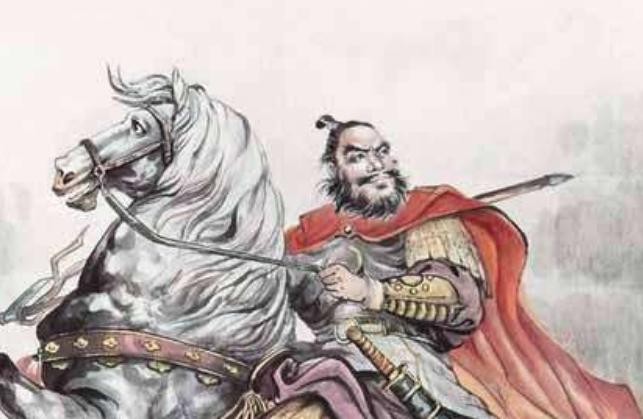The story of the Chu-Han dispute has been heard by everyone, and there have been many stories and allusions about this history. For example, the Hongmen Feast, Wujiang Self-Killing, etc., then today we want to mention the self-murder incident of the King of Chu. People often say that victory or defeat is a common affair of soldiers, and after Xiang Yu's great defeat, why didn't he choose to flee? As the saying goes, staying in qingshan is not afraid of no firewood, and it is not too late for a gentleman to take revenge for ten years, So Xiang Yu will not understand this point, right? Moreover, when he was deceived by the Hongmen Banquet, Xiang Yu should have a great hatred for Liu Bang, so how could he give up on himself? Is there anything else hidden in this?

Xiang Yu
For the ending of Xiang Yu, the king of Chu, many people regretted it to him. So the thinking left for posterity is, why did Xiang Yu not go to the river, rest for a few years and then make a comeback? How did you choose the most extreme way to kill yourself?
According to the earliest records, Xiang Yu chose to commit suicide because he could not face his father and fellow countrymen. This statement comes from the hand of Sima Qian, and the description is very exciting, and because Sima Qian is relatively close to the age of Xiang Yu, this statement is widely circulated.
Sima Qian
It is said that at that time, his favorite concubine was forced to commit suicide, sad and desperate, Xiang Yu was a person with extremely strong self-esteem and strong competition, his self-esteem was hit and the Chu army suffered heavy casualties, so when he fled to Wujiang with the defeated soldiers, looking at the form in front of him, his self-esteem was bursting, he really couldn't stand this humiliation, and he didn't have the face to go back to see Xiangjiang's father and elder, so he drew his sword and killed himself.
Of course, there is also a saying that Xiang Yu saw that his general trend had gone, and there was no possibility of recapture, so there was no need to sacrifice more people, so he wanted to end the war as soon as possible by suicide to reduce the pain caused by the war to the people. When the remnants of Xiang Yu's troops broke through the siege to the Wujiang River, they thought that even if there would be another Chu-Han dispute after crossing the river, it would bring endless harm to the people, so they chose to commit suicide by pitifully living in the world.
This statement is a kind of glorification of Xiang Yu, which is a complete speculation and has no historical record. Of course, for what Xiang Yu had in mind at that time, only he knew it in his heart. However, according to this reasoning, it is almost impossible. The reason is very simple, according to the analysis of his style in the past, there will be no sudden outbreak of conscience, and he is still such a face-saving person, so this point is untenable.
Xiang Yu's temper is known to everyone, very grumpy. At that time, the Qin army captured 200,000 Qin soldiers, but he did not leave all of them to kill, and then burned the Afang Palace for three months, and slaughtered the city on a large scale. Therefore, judging from this past situation, it is almost impossible to say that Xiang Yu committed suicide in order to save the people from the pain of war. But he wanted to single out Liu Bang, wanted to win with one move, it was very likely a plan, but he thought too much, he thought that Liu Bang would act like himself impulsively and eagerly, and as a result, he thought too much, and Liu Bang was not deceived at all.
Liu
Then there is also a saying here, Xiang Yu did not have the opportunity to cross the river at all, and it was not that he did not want to cross the river. According to scholars, the place where Xiang Yu committed suicide is 120 kilometers away from the Wujiang River, and it is believed that the "Xiang Yu Benji" records Sima Qian's mistakes. This argument has been supported and endorsed by many people, believing that Xiang Yu died in the battle in Dongcheng, rather than committing suicide in Wujiang.
If Xiang Yu can cross the river, there is a possibility of coming back, and after killing him, he will fight with Liu Bang to win the world. Because Wang Gongwei was Xiang Yu's nemesis, he was stubbornly resisting Liu Bang even after Xiang Yu's death. Therefore, south of the Yangtze River is Xiang Yu's sphere of influence, and Xiang Yu hopes that he can cross the river. But in any case, in the end, he killed himself in an unknown way, so the reason for the movement has always been a mystery.
Conclusion: At present, the most reliable statement is still due to the inference of rationality, that is, Xiang Yu has crossed the river very much, and the goal is very clear, but he was surrounded by Liu Bang when he fled to Dongcheng, and Xiang Yu was killed in the melee. At this time, Xiang Yu was 120 kilometers away from the Wujiang River, and Xiang Yu had no chance to cross the river at all, and could only look for an opportunity to go to the Wujiang River in the East City, but unfortunately it did not go as he wished.
Reference: Chronicle of History